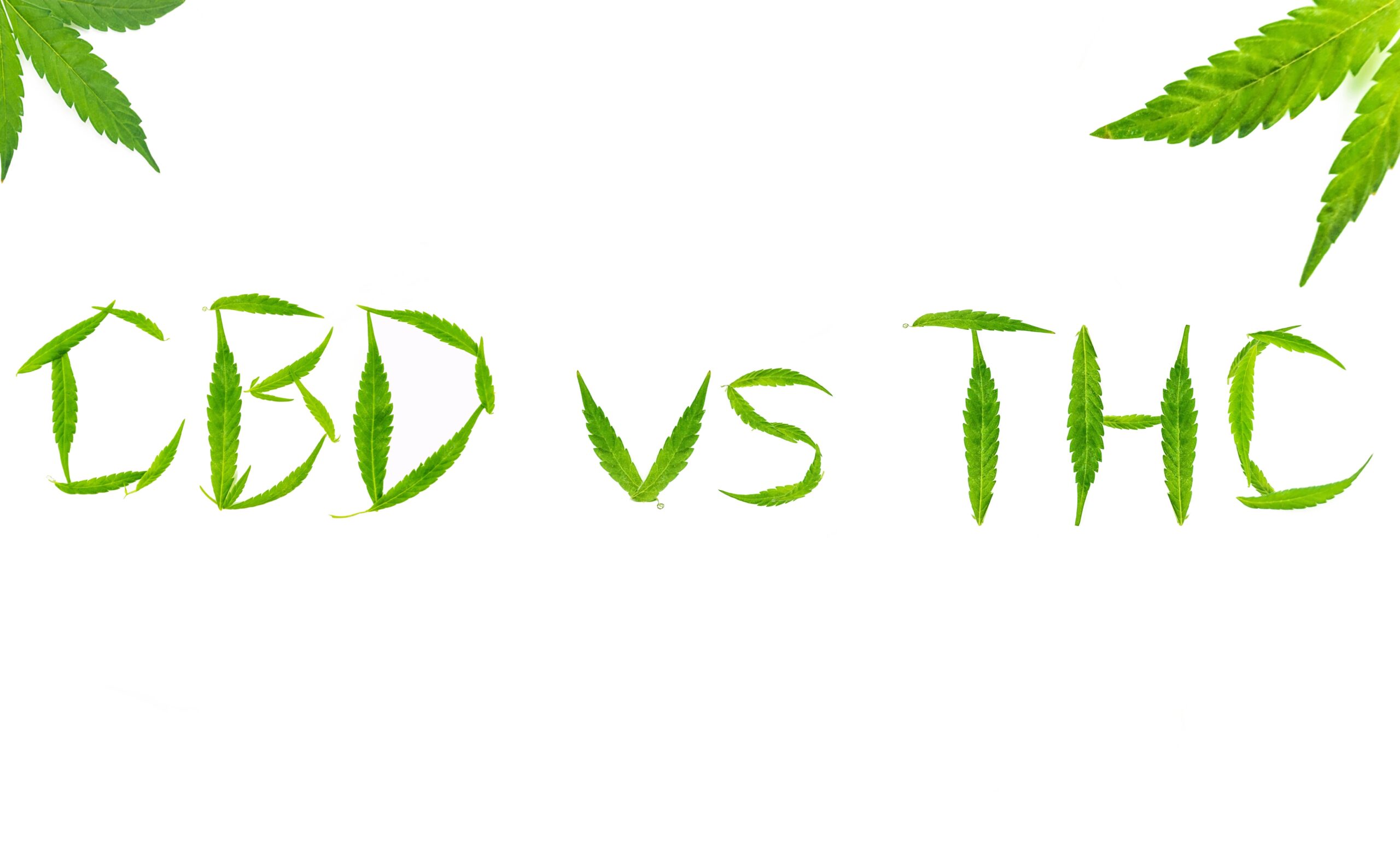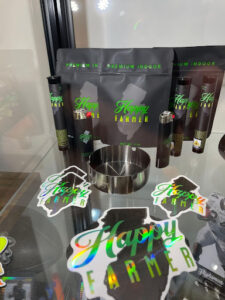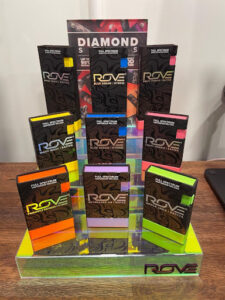Are you weighing the benefits of a THC-infused muscle rub against a CBD topical cream for targeted pain relief? Understanding the distinct properties, mechanisms, and legal nuances of these cannabinoid topicals can transform localized discomfort into manageable relief. This guide explains how cannabis topicals work, explores THC and CBD formulations for muscle pain and skin inflammation, compares their psychoactive and regulatory profiles, highlights the synergy of full-spectrum blends, and offers a Jersey City buyer’s roadmap ultimately empowering you to select the ideal Uforia Dispensary solution.
What Are Cannabis Topicals and How Do They Provide Localized Pain Relief?
Cannabis topicals are specialized products infused with cannabinoids, such as THC and CBD, which are designed for application directly onto the skin. They come in various forms, including creams, balms, lotions, and salves, allowing users to target specific areas of discomfort or inflammation. Unlike other forms of cannabis, such as edibles or oils, topicals do not produce psychoactive effects since they do not penetrate the bloodstream. Instead, they interact with cannabinoid receptors in the skin, muscles, and tissues, providing localized relief without affecting the individual’s mental state. This makes cannabis topicals an appealing option for those seeking relief from pain or skin issues without the intoxicating effects commonly associated with cannabis use.
The effectiveness of cannabis topicals in providing localized pain relief can be attributed to their ability to target the endocannabinoid system directly within the affected area. When applied, cannabinoids bind to the receptors in the skin, which may help to reduce inflammation, soothe soreness, and alleviate discomfort. Additionally, many topical formulations incorporate other beneficial ingredients, such as menthol or essential oils, that enhance the analgesic and anti-inflammatory properties of the cannabinoids. As research into the therapeutic potential of cannabis continues to expand, individuals turning to these holistic treatments for chronic pain management or localized discomfort are finding cannabis topicals to be a promising alternative to conventional pain relief methods. Cannabis topicals are transdermal formulations creams, balms, lotions, salves, or patches enriched with cannabinoids that penetrate the skin’s surface to interact with local receptors. They deliver targeted relief by binding to peripheral CB1 and CB2 receptors without significant systemic absorption, supporting pain regulation and inflammation control at the application site.
What Types of Cannabis Topicals Are Available?
- Creams combine water and oil for quick spread and moderate absorption.
- Balms use beeswax or plant waxes for occlusive protection and prolonged contact.
- Lotions feature higher water content and fast drying for larger surface areas.
- Salves rely on oil bases to deeply moisturize and deliver sustained cannabinoids.
- Transdermal Patches release cannabinoids steadily over hours for chronic conditions.
Each formulation balances consistency, cannabinoid concentration, and release profile to match targeted needs, guiding us to examine how these products engage the endocannabinoid system.
How Do Cannabis Topicals Interact with the Endocannabinoid System?
Topicals interact with the endocannabinoid system by engaging CB1 and CB2 receptors in skin cells, nerve endings, and immune cells. This engagement modulates pain signaling, reduces pro-inflammatory cytokines, and promotes tissue homeostasis. By acting locally, these formulations avoid significant THC crossing the blood-brain barrier while harnessing cannabinoid-driven relief pathways, setting the stage for cannabinoid-specific benefits.
What Are the Benefits of Using Topicals for Pain and Inflammation?
- Localized Pain Relief – Directly targets muscle aches, joint pain, and neuropathic discomfort.
- Reduced Inflammation – Modulates immune response to soothe swelling and stiffness.
- Non-Psychoactive Experience – Delivers therapeutic effects without systemic high.
These benefits underscore why many patients prefer topicals over oral or inhaled routes, and they lead us naturally into examining THC’s specific analgesic properties.
How Do THC Topicals Work for Muscle Pain and Neuropathic Relief?
THC topicals have gained traction as a promising alternative for individuals seeking relief from muscle pain and neuropathic discomfort. These products, which come in various forms such as creams, balms, and oils, are infused with tetrahydrocannabinol (THC), the psychoactive compound found in cannabis. When applied directly to the skin, THC interacts with the body’s endocannabinoid system, particularly the cannabinoid receptors located in the skin and muscle tissues. This interaction is believed to trigger a cascade of physiological responses, including pain relief and reduced inflammation, without producing the psychoactive effects typically associated with THC when ingested or inhaled.
The mechanism behind THC topicals stems from their localized application, which allows users to target specific areas of pain. Unlike other forms of cannabis consumption that can affect the entire body, THC topicals provide a more focused approach, leading to fewer systemic side effects. Patients experiencing chronic muscle pain due to conditions like fibromyalgia or those suffering from neuropathic pain, often characterized by sensations such as burning or tingling, may find significant relief through these topical treatments. Research indicates that THC’s anti-inflammatory properties, coupled with its ability to modulate nerve signaling, can effectively alleviate the discomfort associated with both musculoskeletal and neuropathic pain, making these topicals an appealing option for many seeking non-invasive pain management solutions. THC topicals provide targeted analgesia by activating CB1 receptors on peripheral nerves and CB2 receptors on inflammatory cells. This dual interaction interrupts pain signals and reduces inflammatory mediators, offering rapid soothing effects for muscle soreness and neuropathic discomfort.
What Are the Analgesic Properties of THC in Topicals?
THC binds to CB1 receptors in peripheral nerve fibers, which inhibits nociceptive neurotransmitter release and alters pain perception. Simultaneously, CB2 engagement on immune cells diminishes cytokine production, creating a two-fold pathway for pain modulation that addresses both sensation and inflammation.
THC Topicals for Pain Relief
THC topicals can provide a quick-acting and non-toxic way to downregulate pain and inflammation in a range of pain-related conditions. This provides relief from symptoms, increased mobility and the ability to carry out normal tasks.
This supports the article’s discussion of THC’s analgesic properties and its use in pain management.
Which Conditions Benefit Most from THC Topicals?
- Post-Workout Muscle Soreness – Accelerates recovery after strenuous exercise.
- Chronic Back and Neck Pain – Provides sustained relief for persistent discomfort.
- Neuropathic Pain – Alleviates nerve-related burning, tingling, or shooting pains.
Identifying specific use cases highlights why THC formulations often lead in direct analgesic performance.
What Are Common THC Topical Products and Their Uses?
- High-Potency THC Muscle Rub – Fast-absorbing gel for deep tissue penetration.
- THC Relief Balm – Thick, wax-based salve ideal for joint stiffness.
- THC Cooling Lotion – Menthol-infused formula that combines cannabinoid relief with cooling comfort.
These products demonstrate how tailored ingredients and textures align with different pain scenarios, guiding us to explore CBD’s complementary benefits.
What Are the Anti-Inflammatory and Skincare Benefits of CBD Topicals?
CBD topicals have rapidly gained popularity in the skincare world, particularly for their anti-inflammatory properties and other skin benefits. Cannabidiol (CBD), a non-psychoactive compound extracted from the cannabis plant, interacts with the body’s endocannabinoid system, which plays a crucial role in regulating various physiological processes, including the inflammatory response. When applied topically, CBD can help inhibit the production of pro-inflammatory cytokines, thereby reducing redness, swelling, and discomfort associated with various skin conditions such as acne, psoriasis, and eczema. Its inherent anti-inflammatory properties make CBD an appealing option for those seeking natural alternatives to traditional skincare treatments.
In addition to its anti-inflammatory effects, CBD is also rich in antioxidants and has hydrating properties that can significantly improve skin health. Antioxidants help neutralize free radicals, which are responsible for skin aging and damage. By incorporating CBD into topical formulations, users may experience increased moisture retention and a healthier complexion. Many CBD-infused skincare products also contain nourishing ingredients such as essential oils and vitamins, further amplifying their hydrating and rejuvenating effects. Thus, CBD topicals not only provide immediate relief from skin inflammation but also contribute to long-term skin health and vitality, making them a versatile addition to any skincare regimen. CBD topicals soothe inflammation by interacting primarily with CB2 receptors on immune cells, reducing cytokine release, quelling oxidative stress, and supporting skin barrier health. This mechanism promotes relief in arthritic joints, muscle tightness, and dermatological conditions without psychoactive effects, bridging pain management with skincare enhancement.
Topical Cannabinoids for Skin Conditions
Studies have shown that topical application of cannabinoids can have anti-inflammatory, anti-itching, analgesic, wound healing, and anti-proliferative effects on the skin.
This supports the article’s claims about the benefits of cannabis topicals for skin inflammation and other conditions.
How Does CBD Reduce Inflammation and Support Skin Health?
By modulating CB2 receptor activity, CBD lowers levels of pro-inflammatory molecules like TNF-α and interleukins, while its antioxidant properties protect cellular membranes from free-radical damage. This dual action fosters reduced swelling, improved circulation, and enhanced collagen formation, contributing to both pain relief and visible skin recovery.
CBD for Inflammation
Research suggests that CBD may ease inflammation, showing promise as an anti-inflammatory treatment. CBD’s anti-inflammatory properties may benefit rheumatoid arthritis.
This supports the article’s discussion of CBD’s anti-inflammatory benefits.
Which Pain and Skin Conditions Respond Well to CBD Topicals?
- Arthritis and Joint Stiffness – Eases discomfort and increases mobility.
- Muscle Tension – Relieves tightness after repetitive strain.
- Eczema and Psoriasis – Alleviates itching and redness by calming immune overreaction.
Understanding these applications highlights CBD’s versatility as a non-psychoactive soothing agent.
What CBD Topical Products Are Recommended for Sensitive Skin?
- Hypoallergenic CBD Lotion – Fragrance-free formula with soothing oat extract.
- Gentle CBD Cream – Light-emulsion base enriched with shea butter and aloe vera.
- CBD Soothing Salve – Oil-based preparation with calendula and chamomile.
These low-irritant options demonstrate how formulation choices meet sensitive-skin requirements, paving the way for a direct comparison of THC versus CBD topicals.
What Are the Key Differences Between THC and CBD Topicals for Pain Relief?
When discussing pain relief options within the realm of cannabis, THC (tetrahydrocannabinol) and CBD (cannabidiol) topicals emerge as popular choices, each offering unique benefits and mechanisms of action. The key difference lies in their psychoactive properties and how they interact with the body’s endocannabinoid system. THC is known for its psychoactive effects, which can lead to a euphoric “high.” This attribute may be beneficial for those seeking not only pain relief but also a heightened sense of relaxation or altered perception of pain. THC topicals can penetrate the skin and bind to cannabinoid receptors in the localized area, promoting anti-inflammatory responses and pain relief, albeit with the potential for psychoactive side effects if absorbed systemically.
On the other hand, CBD topicals are primarily non-psychoactive and don’t produce the same euphoric effects associated with THC. They are often preferred by individuals looking for localized relief from discomfort without the change in mental state. CBD works by modulating pain perception and inflammation directly through its interaction with the endocannabinoid system, without engaging in the psychoactive pathways that THC does. Many users report significant relief from conditions such as arthritis, muscle soreness, and skin irritations using CBD topicals. Ultimately, choosing between THC and CBD topicals for pain relief will depend on personal preferences, the nature of the pain, and the desired effects, allowing individuals to select a product that aligns with their health and wellness goals.
| Attribute | THC Topicals | CBD Topicals |
|---|---|---|
| Psychoactivity | Local CB1 activation; minimal systemic high | Non-psychoactive; CB2-focused |
| Primary Benefit | Direct analgesic action | Anti-inflammatory and skin-supportive |
| Legal Status (NJ) | Restricted to licensed dispensaries | Widely available under state and federal guidelines |
| Typical Uses | Muscle pain, neuropathic discomfort | Joint stiffness, skin conditions |
How Do Psychoactive Effects Differ Between THC and CBD Topicals?
THC topicals engage peripheral CB1 receptors without significant blood-brain barrier crossing, rarely inducing a systemic high. In contrast, CBD formulations do not bind CB1, delivering local relief without any psychoactive response, ensuring clear cognition while managing discomfort.
How Do Legal Regulations Affect THC and CBD Topical Availability in New Jersey?
New Jersey law permits CBD topicals containing less than 0.3% THC for general sale, whereas THC-dominant formulations require purchase from a licensed medical or adult-use dispensary. This regulatory distinction shapes consumer access and underscores the importance of sourcing from compliant providers like Uforia Dispensary.
New Jersey Cannabis Laws
New Jersey’s Cannabis Regulatory, Enforcement Assistance, and Marketplace Modernization (CREAMM) Act allows for the legal sale and use of cannabis and cannabis products for residents 21 years and older.
This supports the article’s discussion of New Jersey’s cannabis regulations.
What Are Typical Uses and Benefits Unique to Each Cannabinoid?
- THC topicals are preferred for rapid, intense muscle and nerve pain relief.
- CBD topicals excel at reducing chronic inflammation and supporting dermal repair.
- Balanced products blend both cannabinoids for combined pain-soothing and anti-inflammatory synergy.
These differentiated benefits guide informed choices tailored to specific therapeutic aims.
Why Are Full-Spectrum and Blended THC-CBD Topicals Considered More Effective?
When it comes to the efficacy of cannabis-infused topicals, full-spectrum and blended THC-CBD formulations have garnered significant attention for their enhanced therapeutic properties. Full-spectrum topicals contain a wide array of cannabinoids, terpenes, and other beneficial compounds found in the cannabis plant. This combination creates what is often referred to as the “entourage effect,” which posits that the various compounds work synergistically to amplify each other’s effects. As a result, users may experience improved relief from inflammation, pain, and skin conditions compared to products that contain isolated cannabinoids alone.
Blended THC-CBD topicals take this concept a step further by combining the psychoactive properties of THC with the non-intoxicating effects of CBD. This balance can result in a more comprehensive relief profile, addressing both localized pain and systemic discomfort. Additionally, CBD is known to mitigate some of the potential side effects of THC, such as paranoia or anxiety, making the blended products more accessible for a wider audience. The interplay of these cannabinoids, combined with other natural ingredients often found in topical formulations, enhances not only effectiveness but also user satisfaction, reinforcing the growing preference for full-spectrum and blended topicals in the wellness industry. Full-spectrum topicals harness the entourage effect synergistic interactions among cannabinoids, terpenes, and flavonoids to amplify relief beyond isolated compounds. By combining active molecules, these formulations elevate both analgesic and anti-inflammatory outcomes in a single application.
What Is the Entourage Effect and How Does It Enhance Topical Relief?
The entourage effect describes how minor cannabinoids and terpenes work alongside THC and CBD to optimize receptor binding and inflammatory modulation. This synergy increases efficacy by engaging multiple pathways for pain reduction, enhanced absorption, and prolonged therapeutic action.
Entourage Effect
The entourage effect is a unified theory on how the various compounds in cannabis and our bodies interact synergistically to create the variety of therapeutic and subjective effects the plant is famous and infamous for.
This supports the article’s explanation of the entourage effect and its role in enhancing topical relief.
How Do 1-1 Ratio Topicals Provide Balanced Pain and Inflammation Relief?
A 1:1 THC-CBD ratio delivers equal analgesic and anti-inflammatory forces, ensuring neither psychoactivity nor swelling is neglected. Users often report well-rounded relief, with cannabinoids modulating each other’s effects for a smoother, predictable response.
What Role Do Minor Cannabinoids Like CBG and CBN Play in Topicals?
- CBG supports neuroprotective and antibiotic properties in skin applications.
- CBN may enhance muscle relaxation and improve local sedation for restful recovery.
- CBC delivers complementary anti-inflammatory and analgesic support.
These emerging components expand the therapeutic spectrum of topical formulations, moving us toward tailored relief strategies.
How Can Jersey City Residents Choose the Right Cannabis Topical for Their Pain?
When it comes to managing pain, Jersey City residents have increasingly turned to cannabis topicals as a viable option. These products, which can include creams, balms, and oils infused with cannabinoids, offer localized relief without the psychoactive effects associated with other forms of cannabis. However, choosing the right cannabis topical can be a nuanced process that requires consumers to consider several factors. Understanding the specific type of pain, whether it is chronic or acute, is the first step. For instance, individuals suffering from muscle soreness or joint pain might benefit from products that contain higher levels of CBD, known for its anti-inflammatory properties, while those dealing with nerve-related discomfort may find THC-rich options more effective.
Additionally, Jersey City residents should pay attention to the ingredients present in the topical products they are considering. Natural and organic formulations are often recommended as they tend to be gentler on the skin and free from harmful chemicals. Furthermore, reading product labels for cannabinoid content, as well as understanding the ratios of CBD to THC, can empower consumers to make informed choices that align with their specific needs. Consulting with knowledgeable dispensary staff or healthcare professionals can also provide valuable insights, helping users discern which product may offer the best chance for relief. With thorough research and a discerning approach, residents can effectively navigate the diverse array of cannabis topicals available to find the right match for their pain management needs. Selecting an optimal topical depends on pain type, desired onset, formulation base, and cannabinoid concentration. By evaluating these criteria, adults in Jersey City can navigate options that align with their relief goals and local regulatory framework.
What Factors Should Influence Your Topical Selection?
- Type of Discomfort – Differentiate between inflammatory and neuropathic pain.
- Desired Speed of Action – Gels act quickly; balms last longer.
- Cannabinoid Ratio – Higher THC for analgesia; higher CBD for inflammation.
- Skin Sensitivity – Choose gentle bases and hypoallergenic preservatives.
- Application Area – Use lotions for large areas, salves for pinpoint relief.
These considerations streamline decision-making and maximize therapeutic outcomes.
How Does Uforia Dispensary Provide Expert Guidance on Topical Choices?
Uforia Dispensary’s trained budtenders conduct personalized consultations, matching pain profiles to cannabinoid ratios and product forms. Their local expertise ensures compliance with New Jersey regulations while optimizing client comfort and efficacy—ensuring every selection aligns with individual needs.
What Are New Jersey’s Cannabis Topical Regulations and Compliance Requirements?
Under New Jersey law, all THC topicals must be dispensed through licensed dispensaries, labeled with cannabinoid content and usage instructions. CBD topicals are subject to 0.3% THC limits and standard cosmetic regulations. Adhering to these rules guarantees both safety and legal peace of mind for consumers.
What Are the Most Common Questions About THC and CBD Topicals?
When it comes to cannabis-infused products, THC and CBD topicals have gained significant attention for their potential therapeutic benefits. These products, which can come in various forms such as creams, balms, and oils, are designed to be applied directly to the skin, providing localized relief without the psychoactive effects typically associated with THC. As more individuals explore the advantages of these topicals, several common questions arise, reflecting their curiosity and concerns regarding efficacy, safety, and application methods.
One of the most frequently asked questions is about the differences in effects between THC and CBD topicals. While CBD is renowned for its anti-inflammatory and analgesic properties, THC topicals may offer additional benefits due to the synergistic effects of cannabinoids. Many users wonder whether these products can penetrate the skin and enter the bloodstream, which can lead to confusion regarding their psychoactive potential. Another common inquiry revolves around the dosage and how much topical to apply for optimal results. As with any cannabis product, individual experiences can vary widely based on factors such as skin type, the condition being treated, and the concentration of cannabinoids in the topical. Addressing these questions helps consumers make informed choices and maximize the benefits of THC and CBD topicals in their wellness routines. Many adult users in Jersey City seek clarity on effectiveness, safety, and timeline when considering cannabinoid topicals. Addressing these core concerns helps optimize application choices and manage expectations.
Is THC or CBD Better for Topical Pain Relief?
THC topicals often provide stronger direct analgesia through CB1 engagement, while CBD excels at reducing inflammation. A balanced THC-CBD blend can deliver comprehensive relief by combining both pain-modulating pathways.
Can THC Topicals Cause Psychoactive Effects or a High?
Applied topically, THC binds local receptors with minimal systemic absorption, preventing significant psychoactive effects. Proper dosing and formulation ensure users experience relief without cognitive impairment.
How Long Do Cannabis Topicals Take to Work?
Most users feel relief within 10–30 minutes of application, depending on product base and concentration. Gels and lotions tend to act faster, while balm and salve bases release cannabinoids more slowly over hours.
Are Cannabis Topicals Safe for Sensitive Skin and Long-Term Use?
Formulations using hypoallergenic bases, natural emollients, and preservative-free ingredients are generally safe for sensitive skin. Long-term use has shown minimal adverse effects, provided products are applied as directed and skin reactions are monitored.
Where Can You Find High-Quality THC and CBD Topicals in Jersey City?
In Jersey City, individuals seeking high-quality THC and CBD topicals can find a variety of reputable sources to meet their wellness needs. Local dispensaries play a pivotal role in this market, offering a selection of topicals that cater to various therapeutic requirements. These establishments are staffed by knowledgeable professionals who can guide customers in selecting the right products based on their preferences and desired effects. Many dispensaries also emphasize transparency, providing lab test results to ensure quality and potency, which is essential for consumers looking for effective relief.
Beyond dispensaries, Jersey City boasts several wellness shops and holistic health boutiques that prioritize natural remedies and alternative therapies. These stores often feature a curated selection of THC and CBD topicals, alongside other wellness products. Additionally, local herbal shops and farmers markets may offer artisanal topicals crafted by regional producers, ensuring a unique and quality-focused shopping experience. By exploring these options, residents can easily access the benefits of cannabis-infused creams, balms, and oils, tailored to enhance their physical and mental well-being. Uforia Dispensary in Jersey City offers a curated selection of premium THC, CBD, and blended topicals designed for targeted pain and inflammation relief. Their product range, expert guidance, and regulatory compliance establish them as a trusted local source.
What Topical Products Does Uforia Dispensary Offer for Pain Relief?
- THC Muscle Gel – Rapid cooling and deep-tissue penetration.
- CBD Anti-Inflammatory Cream – Soothing hydration for arthritic joints.
- 1:1 THC-CBD Salve – Balanced relief with natural botanical enhancers.
Highlighting these options demonstrates Uforia’s commitment to quality formulations.
How to Purchase Cannabis Topicals at Uforia: In-Store and Online Options
Customers can visit the Jersey City storefront for in-person consultations or shop the full topical catalog through Uforia’s secure online platform. Both channels provide detailed product information and expert recommendations to streamline the buying experience.
What Do Local Customers Say About Uforia’s Topicals?
Local users praise Uforia’s topicals for rapid onset, lasting relief, and gentle formulations. Many report returning for customized blends after experiencing targeted improvements in muscle recovery, joint mobility, and skin comfort. Localized relief starts with informed choices. By understanding how THC and CBD topicals interact with the endocannabinoid system, recognizing their unique benefits, and leveraging full-spectrum synergy, Jersey City adults can confidently select the most effective Uforia Dispensary products for pain and inflammation management. Explore these trusted formulations to transform discomfort into well-being.
Frequently Asked Questions
1. Can I use THC and CBD topicals together for enhanced relief?
Yes, using THC and CBD topicals together can provide enhanced relief due to the entourage effect. This phenomenon occurs when the combined properties of both cannabinoids work synergistically, potentially offering better pain modulation and anti-inflammatory benefits than either compound alone. Many users find that a balanced THC-CBD ratio in topical formulations can address both pain and inflammation effectively, making it a popular choice for those seeking comprehensive relief.
2. How should I apply cannabis topicals for best results?
For optimal results, apply cannabis topicals directly to the affected area and gently massage them into the skin. This helps increase absorption and ensures that the cannabinoids interact effectively with local receptors. It’s advisable to start with a small amount and gradually increase as needed, allowing time to assess the product’s effects. Consistency in application, such as using the topical regularly, can also enhance its effectiveness over time.
3. Are there any side effects associated with using cannabis topicals?
Cannabis topicals are generally considered safe, with minimal side effects. However, some individuals may experience localized skin irritation or allergic reactions, particularly if they have sensitive skin. It’s important to perform a patch test on a small area before full application. Additionally, always choose products with natural ingredients and avoid those with synthetic additives to reduce the risk of adverse reactions.
4. How do I know which cannabinoid ratio is right for my condition?
The right cannabinoid ratio depends on the type of pain or condition you are experiencing. For acute pain relief, a higher THC concentration may be beneficial, while chronic inflammation may respond better to higher CBD levels. Consulting with a knowledgeable budtender at a dispensary can help you determine the best ratio based on your specific needs and preferences, ensuring a tailored approach to your pain management.
5. Can I use cannabis topicals for conditions other than pain relief?
Yes, cannabis topicals can be effective for various conditions beyond pain relief. They are often used to address skin issues such as eczema, psoriasis, and acne due to their anti-inflammatory and soothing properties. Additionally, some formulations may help with muscle tension and recovery after exercise. Always choose products specifically designed for your condition to maximize their benefits.
6. How long do the effects of cannabis topicals last?
The duration of effects from cannabis topicals can vary based on the formulation and individual factors. Generally, users report relief lasting anywhere from a few hours to several hours, depending on the product’s potency and the area of application. For sustained relief, reapplication may be necessary, especially for chronic conditions. Monitoring your response can help you determine the best application schedule for your needs.
7. Are there any legal considerations for purchasing cannabis topicals in New Jersey?
Yes, in New Jersey, THC topicals can only be purchased from licensed dispensaries, while CBD topicals are more widely available under state and federal guidelines, provided they contain less than 0.3% THC. It’s essential to ensure that any product you purchase complies with local regulations to guarantee safety and legality. Always check for proper labeling and sourcing from reputable providers like Uforia Dispensary.





